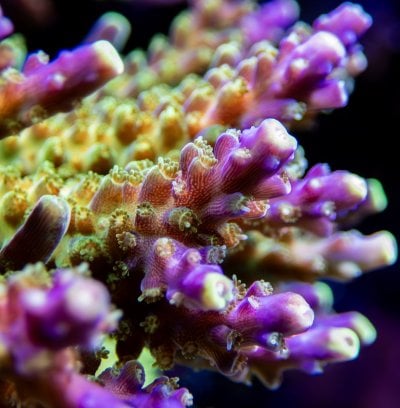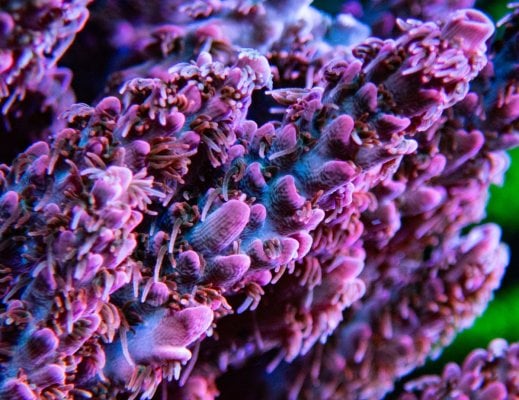I agree! I consider Mike Paletta's book Ulimate Marine Aquariums very influential on my reefkeeping. The "setup overview" format gives us the recipes for successful systems. There are so many methods used to create thriving reefs that it can be confusing. Being able to compare the parameters and equipment of established systems is an important education tool.Cheers, and many thanks for taking the time to explain your tank setup. Seeing how successful reefers run tanks is always interesting, and you have a fantastic tank - well done on all that hard work!
Navigation
Install the app
How to install the app on iOS
Follow along with the video below to see how to install our site as a web app on your home screen.
Note: This feature may not be available in some browsers.
More options
You are using an out of date browser. It may not display this or other websites correctly.
You should upgrade or use an alternative browser.
You should upgrade or use an alternative browser.
REEF OF THE MONTH - October 2023: Victory Reef! 650 Gallons of Thriving Marine Splendor!
- Thread starter Daniel@R2R
- Start date
- Tagged users None
After our conversation last week I did some reading and am hoping for a little clarification on why you made the above statement. I read your excellent article on alkalinity. https://reefs.com/magazine/chemistry-and-the-aquarium-what-is-alkalinity/I don’t think consumption of alkalinity has much if anything to do with why we get pH swings. It’s variable amounts of CO2.
In the article you provide a graph that shows you adding acid to a saltwater sample and an un-buffered pure freshwater sample. The pH declines gradually in the saltwater sample but drops precipitously in the freshwater sample.
My line of reasoning is that corals remove alkalinity from the water column and incorporate it as calcium carbonate into their skeletons. As the alkalinity ( mostly carbonates and bicarbonates as I understand) is removed from the water, the pH buffering capacity of the water is reduced. Therefore the water is subject to more violent pH swings with the introduction of carbon dioxide from the respiration of organisms and other biological processes.
I guess a more specific question is that if you add a set amount of CO2 to 7dkh water and the same amount to 10dkh water, will there be a more significant pH change in the less buffered water?
Thank you in advance for you time.
-Randy and I continue this discussion here: Thread 'Alkalinity and pH swing' https://www.reef2reef.com/threads/alkalinity-and-ph-swing.1014986/
Last edited:
I gained a love for shooting macros from this project. Here are a few more from the stockpile 0



Last edited:
Just wow...
Beautiful tank. Nice to see another Family Medicine doc enjoying reefing. Have you ever desired to put a nano tank in your office at work? I have.
@BillyF Any thoughts?Beautiful tank. Nice to see another Family Medicine doc enjoying reefing. Have you ever desired to put a nano tank in your office at work? I have.
Randy Holmes-Farley
Reef Chemist
View Badges
Staff member
Super Moderator
Excellence Award
Expert Contributor
Article Contributor
R2R Research
My Tank Thread
After our conversation last week I did some reading and am hoping for a little clarification on why you made the above statement. I read your excellent article on alkalinity. https://reefs.com/magazine/chemistry-and-the-aquarium-what-is-alkalinity/
In the article you provide a graph that shows you adding acid to a saltwater sample and an un-buffered pure freshwater sample. The pH declines gradually in the saltwater sample but drops precipitously in the freshwater sample.

My line of reasoning is that corals remove alkalinity from the water column and incorporate it as calcium carbonate into their skeletons. As the alkalinity ( mostly carbonates and bicarbonates as I understand) is removed from the water, the pH buffering capacity of the water is reduced. Therefore the water is subject to more violent pH swings with the introduction of carbon dioxide from the respiration of organisms and other biological processes.
I guess a more specific question is that if you add a set amount of CO2 to 7dkh water and the same amount to 10dkh water, will there be a more significant pH change in the less buffered water?
Thank you in advance for you time.
-Randy and I continue this discussion here: Thread 'Alkalinity and pH swing' https://www.reef2reef.com/threads/alkalinity-and-ph-swing.1014986/
I must have missed this, but yes, the size of the pH swing is inversely proportional to the alkalinity. At 11 dKH it will be about 2/3 of the size of the swing at 7 dKH.
I think that was the point I was trying to make about higher alkalinity in the article, but ended up conflating several different chemical reactions. I appreciate you taking the time to talk me through it. The relationship between pH and alkalinity is much more defined in my mind now.I must have missed this, but yes, the size of the pH swing is inversely proportional to the alkalinity. At 11 dKH it will be about 2/3 of the size of the swing at 7 dKH.
Last edited:
Great tank, but how do you reach the bottom ????
I use a PikStik grabber and long handled gardening tools. And patience. Lots of patience. It can be quite frustrating standing on a ladder reaching down 4ft in the tank to manage coral.Great tank, but how do you reach the bottom ????
Patio view of 2 sides of the aquarium. It's hard to capture the scale in pictures. The other two sides are viewable from the bedroom and service room.
5 years of growth. Hard to believe it's been 6 months since ROTM. Here is an updated picture from servicing the tank today

Similar threads
-
- AMS: Article
- Replies
- 30
- Views
- 2,743
-
- AMS: Article
- Replies
- 42
- Views
- 5,334
-
- AMS: Article
- Replies
- 32
- Views
- 3,813
-
- AMS: Article
- Replies
- 77
- Views
- 4,838

















